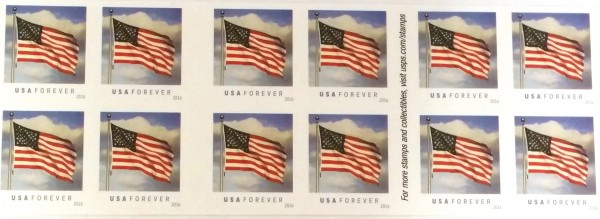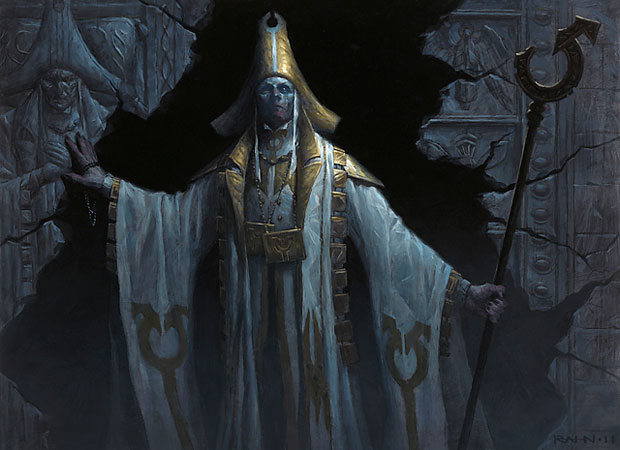Are you a Quiet Speculation member?
If not, now is a perfect time to join up! Our powerful tools, breaking-news analysis, and exclusive Discord channel will make sure you stay up to date and ahead of the curve.
Welcome back, readers!
In last week's article, I mentioned how one of the world's wisest investors utilizes a creed of buying when others are selling, and selling when others are buying.
The biggest challenge of this strategy is that it feels safer to move with the herd (so to speak), whereas going against it often incites fear. The thought is usually that the collective mind is smarter than the individual, so going against the collective is not smart. However, we've seen plenty of times throughout history when you could have won big by betting against the collective.
Today we'll look at a once-rising star in the MTG trading community that seems to have fallen out of favor: PucaTrade. If we're following Mr. Buffet's advice to be greedy when others are fearful, then PucaTrade's hard times might be just the time to look for opportunities.
Today I'll go over the reasons for PucaTrade's recent decline and discuss some of the ways we might be able to use it to our benefit.
A Brief History of PucaTrade

For readers still unfamiliar with the site, PucaTrade was created a couple years ago to facilitate Magic trading among strangers. Rather than require traders exchange cards for other cards, PucaTrade allows you to trade cards for their proprietary currency, PucaPoints, which can then be cashed in for other cards. Thus they have created their own mini-economy.
The service's major selling point is that it's much easier to trade cards for a currency (i.e. sell) then it is to create equal trades between two trading partners. Say that I had four $3 cards that someone wanted, but they only had one $10 card that I wanted. To trade make a trade, I'd either have to lose out on $2 worth of value to "trade up," or convince them to lose $1 worth of value to trade down.
Obviously, the other option is to just sell the cards and then buy the ones you want, but selling for actual money can be difficult if you want to get full value. To lock in your card's current value, you likely have to sell to a buylist, which lops off a big percentage (typically between 30-55%).
Of course a dealer or store won't sell you cards at the same rate. Imagine you sell your $12 worth of cards at 70% of their value. If you wanted to buy from a store, you'd then need to chip in another $2 of your own money. So now you've invested $14 of value for your $10 card.
PucaTrade allows you to trade your four $3 cards for 1200 PucaPoints. Then someone could trade you the $10 card you wanted for 1000 PucaPoints, and you still have 200 left over.
It's even free to use, so all you pay is shipping. Sounds great, doesn't it?

Problems with PucaTrade
As it turns out, the PucaTrade system has presented some difficulties. What happens when your users lose faith in the system?
Early on, one of Puca's biggest problems was that it relied on the honesty of both parties—the seller actually sending the cards, and the buyer admitting they got them. As in any large market, you're bound to have people who try to abuse it. For a while, the Puca admins' strategy in the case of disputes was simply to refund the points to the receiver without subtracting them from the sender's account. In effect this practice added points into the system, leading to inflation.
That wasn't the only way points were added either. New users could earn up to 500 points (around $5) by completing some pretty simple beginner tasks. While that was a good way to encourage new users to join, it added a ton of extra points to the system. As we've seen with actual governments when they just create money out of thin air, this ends up devaluing the currency.
Another issue is how the price-setting mechanism affects incentives for prospective traders. The PucaPoint is linked to the dollar (you can buy 100 points for $1), and card prices are taken mostly from TCG mid. If I want to pay cash for a card, I can simply buy the cheapest copy on TCG Player. Why would I want to buy PucaPoints and then wait for someone to send me the card, all while paying the full TCG mid value?
Being a mini-economy, PucaTrade needs to attract a diverse group of traders—otherwise everyone will want the same things and nothing will ever change hands. An ideal LGS environment is the same way. One needs a healthy group of casual, competitive-Standard, competitive-Modern, Legacy, and Commander players to keep feeding the card economy, as one group typically wants things the other group has. If you only have one or two groups heavily represented, you end up with far fewer transactions.
For example, say you have a store with a very competitive Standard playerbase. They are likely to trade in all their copies of Mikaeus the Unhallowed, and they'll be wanting copies of Liliana, the Last Hope. But if you have no Commander playerbase, then the Mikaeus's will start to pile up and you'll never get any Lilianas in.
Your Standard players will begin to rethink whether trading cards into your store is worth it, because they can't get the cards they need to play. This creates a drought in new trade-ins as players lose faith in their store credit buying what they want.
If we look at what's being traded a lot on PucaTrade, only nine of the top 50 traded cards weren't Standard-legal. And two of those were Catacomb Slug (which I can only assume is either a joke or the Puca owners testing something out). The most expensive card was Smuggler's Copter, which shows that even medium-dollar stuff isn't moving very quickly.
Another major factor to look at is what people are selling PucaPoints for. For a long time, the going rate was $0.7-$0.75 per 100 (i.e. 70-75 cents on the dollar). Now we're seeing people try to sell for $0.45-$0.5 per 100, which is a pretty significant difference.
Opportunities on PucaTrade
That's a lot of doom and gloom surrounding PucaTrade, so where's the upside?
As I alluded to earlier, stores that are heavily skewed towards one or two types of player often find themselves lacking in specific staples. Right now PucaTrade still seems to be moving some Standard stuff, so it might be a good venue for picking up those staples. If larger-ticket eternal staples are languishing in your case while you can't keep Standard cards in stock, PucaTrade might be a good way to turn them into cards you can sell more easily.
If such stores start using PucaTrade as an avenue to convert non-liquid cards into liquid cards, I think the Puca economy will recover. The owners have also accepted that the PucaPoint has hit some pretty heavy inflation and are actively taking steps to remove points from the system (via raffles and trade "insurance"). They've reduced the 500-point bonuses down to a 350-point bonus, and admins do more review before resolving cases (helping cut back on fraud as well).
Another thing to consider are Frontier cards. After reviewing the top-selling cards on TCG Player, we see the #1 and #2 spots were both Khans rares which are big in the Frontier format. I am still reluctant to jump on board this train (I got burned on Tiny Leaders). But the big difference here is that stores seem to be picking up the format (partly because it draws demand for cards that otherwise might just languish in boxes in the corner).
So picking up extra copies of these via PucaTrade may not be a bad way to stockpile. Again, if you can buy the points dirt-cheap you could be getting these cards at or below buylist pricing.






I have found that the cards that move the most on Pucatrade are those being actively opened. When Wizards did the holiday EMA “reprint” – I saw many of my EMA wants get full filled. I know that will slow as packs stop being opened, but expect a small lift again post holidays as packs are opened as gifts.
I have also found an opportunity moving older cards, specifically uncommons and commons to international players. I started playing in 2004 and kept all my cards since that time. I recently took the time to add all my uncommons to my Pucatrade inventory and have seen great success moving cards at TCG Mid (in PucaPoints) that would otherwise by bulk. Using optimized shipping practices I am able to ship large quantities (60-80) cards in one package for $2.30 anywhere in the world.
This nets me on average $40-$50 in PucaPoints that I can then turn into Standard, Special Set specs that if need be I can more easily buylist, sell, trade than my old bulk uncommons.